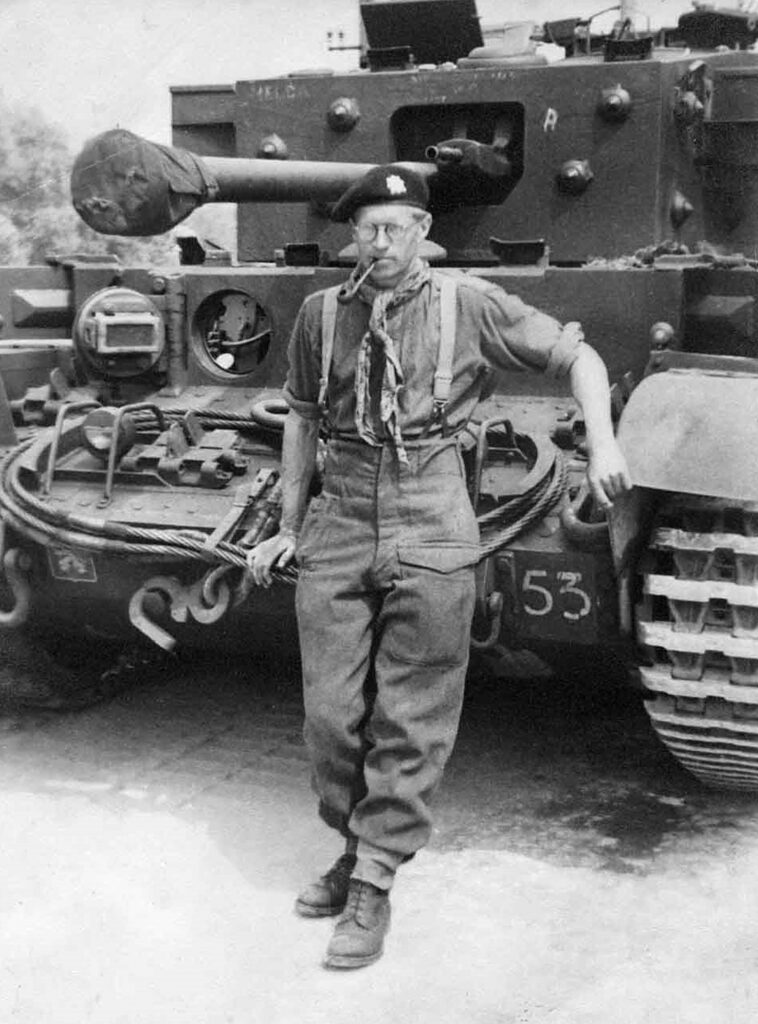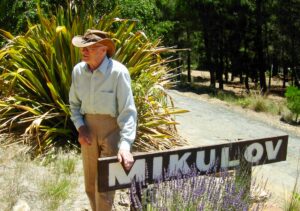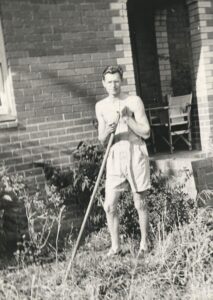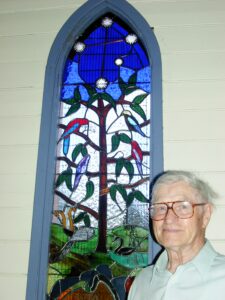Alois Mikula
I was born in 1919, in Tupesy near Zlin, as the sixth child and third son out of eight children, the year after Czechoslovakia came into being. My father Ignac was at various times a bricklayer and worked occasionally on the railroads. When I finished primary school, only me and one other boy from our village got the opportunity to go to secondary school. This was in the next larger village, and we walked together some five kilometres each day come sun, rain, or snow.
I joined the 3rd Indian Motor Brigade, trained in Ceylon
Having done well with school, I took the opportunity to continue my education. I was accepted to the Bata Enterprises School for Young Men in Zlin, and completed the two year course in business studies, along with English and French. The Bata Shoe Company first sent me to Belgium. However, I did not get on with my boss and applied for a transfer to India. I travelled through India and Ceylon, overseeing shipments of shoes and arranging their sale.
The war began. I joined the 3rd Indian Motor Brigade, trained in Ceylon, and was shipped out to Cairo as the sole Czech representative in this Indian Brigade. After basic training, the Indian Motor Brigade was heavily involved in the North Africa campaign, fighting against the Italians as well as Rommel’s Afrika Corps. I ended up in Tobruk for the duration of the whole siege as an infantryman, where I met troops from Australia. I felt that there was something special in the Australian character – the bravery and demeanour of the Diggers he encountered at Tobruk left a lasting impression on me. I thought to myself that I might like to visit Australia someday.
In early 1944, I was transferred to the Free Czech forces in England and was allocated to the Czechoslovak Armoured brigade for re-training as a navigator and radio operator in Cromwell cruiser tanks. Our brigade arrived in France at the end of August 1944 and was assigned to the containment of 20,000 Germans in Dunkirk. In October 1944, we came under one heavy attack. I was in the barn, sleeping at the time, when shells landed in the courtyard, exploding everywhere. I heard someone shouting: “Josef Paclik is wounded!”. I bolted out of the barn, looking for my friend. At the front, in the furthest corner of the courtyard was an explosion followed by a light like a huge two metre candle. I saw ordinary shells bursting everywhere and immediately threw myself on the ground. How I survived the next few minutes, that´s a mystery to me. I just looked for the nearest explosion and jumped into the hole it made. One shell handed at my feet as I was flat on the ground. Luckily the explosion from this shell was directed upwards rather than outwards and I escaped completely unscathed, although my trousers and the bottom of my greatcoat were completely shredded by the explosion. I found my friend Josef, who was unconscious, and his winter coat was soaked with blood. With the help of the others, I got him into the barn. He was taken to hospital but died a few days later.
The Czech forces were located around Dunkirk for the remainder of the war, and I returned to Czechoslovakia in the middle of 1945. I began to teach English courses for officer cadets until the demobilisation in 1946. Later I worked as language lecturer in Prague. When the communists took over in 1948, at first it seemed calm, but soon I realised that veterans who had fought with the Western Allies would be persecuted, so I knew I had to get out of Czechoslovakia, soon or later. I crossed the border to Bavaria in June of that year.
I arrived in Australia in October 1949, on board the ship SS Anamapura
German police took me to displaced persons camps near Augsburg where I spent couple of months and where I also met Latvian girl Vanda, my future wife.
One day, some Australians showed up at the camp looking for potential emigrants, and I wasted no time in signing in. I arrived in Australia in October 1949, on board the ship SS Anamapura, and Vanda in the middle of the following year. After the two years of obligatory service to the government in parks and gardens as a tractor driver, I secured a job with the Bureau of Statistics in Canberra. We lived in the O’Connor suburb. My specialty was farm income and expenditure, and upon my retirement in 1984 I remarked that I had to be replaced by three people and a computer. After retirement, I decided that I still needed a hobby to occupy myself, so I did an eight-week course in making stained glass artefacts. I started with simple flat designs, but it wasn’t long before I figured out how to create in three dimensions. I enjoyed making various candle shelters, glass lamp shades as well as restoring stained glass windows in various country churches around Canberra.
Alois Mikula was also a foundation member of the Scouting Movement in O’Connor and helped establish the O’Connor Scout Hall in 1959. He was awarded the Medal of the Order of Australia in 1996 for his services to both the Australian Scouting movement and the Australian Veterans Association. He passed away on May 11, 2015.







